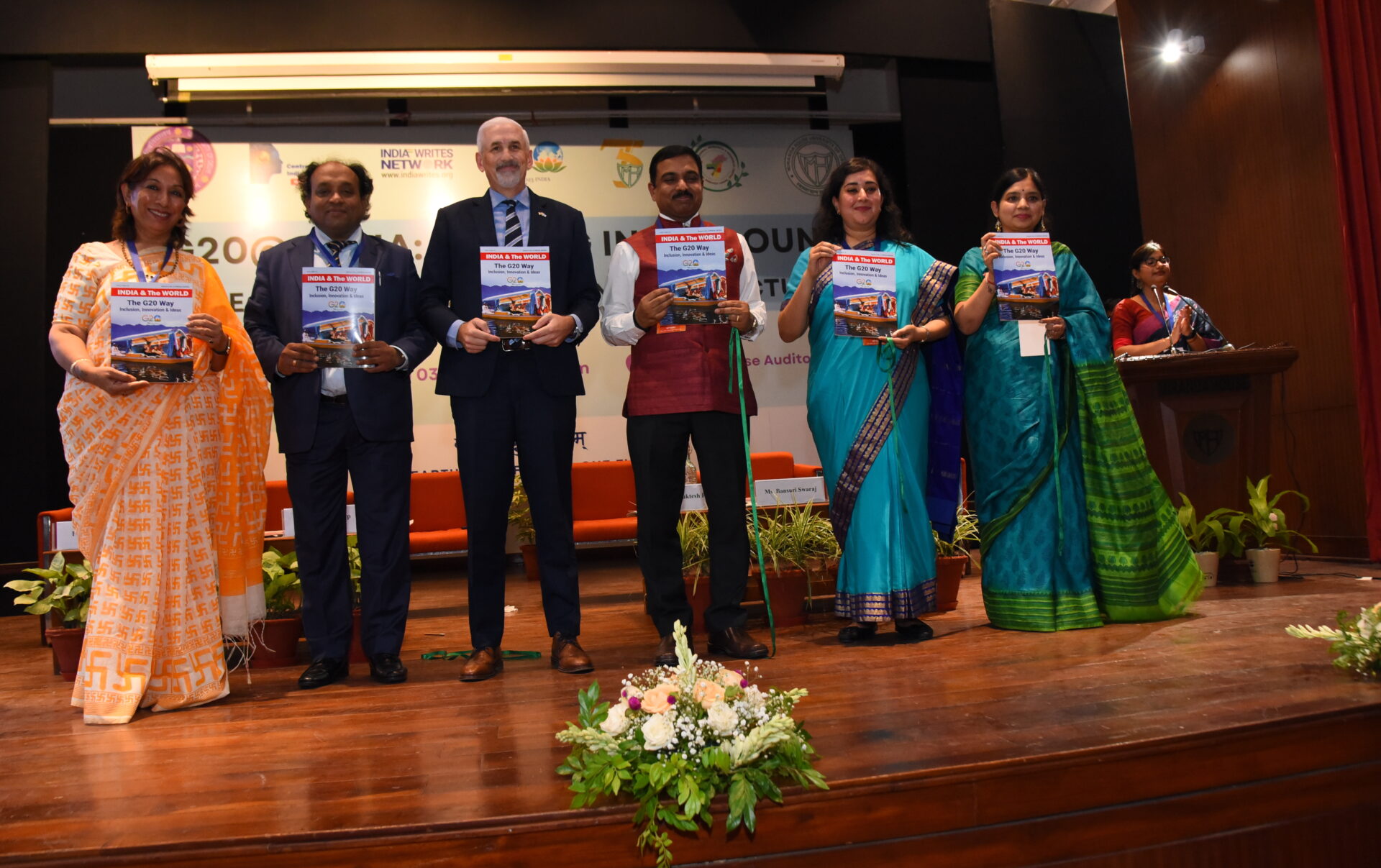NEW DELHI
With barely weeks to go before India hosts the G20 summit, a conference in New Delhi showcased the role of youth, academics, and intellectuals in the success of the country’s G20 presidency, with a senior official underlining the country’s global leadership in addressing cross-cutting challenges.
“India’s sheer size, being the mother of democracy; the fifth largest economy; and one of the oldest civilizations, demands global recognition
He stressed that the focus of India’s G20 presidency was on promoting “sustainable consumption” which was embodied in Prime Minister Narendra Modi’s mantra of Lifestyle for the Environment (LiFE). “We are speaking about reforming multilateral institutions, including the UN, World Bank and the International Monetary Fund (IMF),” said Pardeshi, a former ambassador of India to Mexico and New Zealand. He was speaking at a panel discussion entitled, “Making India Count: Role of Youth, Academia and Intellectuals.” The conference was co-organised by Miranda House and the Centre for Global India Insights (CGII), a think tank focused on global affairs and a venture of India Writes Network.
“Diplomacy is thought of as restricted to the drawing rooms of educated people, the elites of Delhi. Through the G20 presidency, we are taking G20 to the grassroots and the people,” Pardeshi added.
Describing the summit—which New Delhi will host on 9-10 September—as India’s “Olympic moment,” Pardeshi said, “It is a high-point for India’s global leadership. It is a high-point for India’s policy-making and showcasing India to the world.” He added that the G20 presidency would leave a “lasting legacy”, in terms of shaping a “global narrative about India” as well as “augmenting the capacities” of the youth in hosting mega-events like the G20.
Besides Mr Pardeshi, speakers at the conclave included Shombi Sharp, UN Resident Coordinator, India; Bansuri Swaraj, Supreme Court advocate and a Women20 member; Professor Rajni Abbi, Chairperson, Miranda House Governing Board; Professor Bijayalaxmi Nanda, Principal, Miranda House, and Manish Chand, Director, Centre for Global Insights and CEO, India Writes Network. A special edition of India and the World entitled “The G20 Way: Inclusion, Innovation and Ideas” was also launched at the panel discussion.
In his remarks, Manish Chand, Founder-CEO, India Writes Network and CGII, focused on the transformative potential of G20 and the significance of youth and intellectuals in actualising the G20 presidency. “India’s G20 presidency is unfolding at a time when three Cs: Crisis, Conflict and Chaos permeate the current international landscape. In such a dire situation, India’s G20 presidency has emerged as a beacon of ‘Hope, Harmony and Healing.’”
“India has become indispensable to addressing the global issues of the day. By harnessing the energies of civil society actors and the power of youth, the G20 can become a catalyst for the transformation of the world, which is currently assailed by multiple crises,” he said.
Ms Swaraj lauded India’s resilience during the pandemic and its contribution to global vaccination efforts. “It is really sad that the youth of India has inherited a difficult world coming out of the pandemic which created a catastrophic world crisis, India came out triumphant in these crises and became the pharmacy of the world by providing vaccines to 101 countries”.
Professor Nanda stressed on core values such as Collaboration, Cooperation and Consensus, which guide India’s G20 presidency. “We are celebrating India’s leadership of G20. Young people will play a vital role in finding solutions to global challenges such as climate change and sustainable solutions.”
UN Resident Coordinator Shombi Sharp underlined India’s critical role in achieving SDGs. “At present the SDGs are off track, and will only achieve 12 percent by 2030. The need for global cooperation is more than ever before and dependent on the youth of India, including the young women and girls,” Mr Sharp said. “India gives me so much optimism; it is India’s movement to drive a global Jan-Andolan for sustainability. These targets are dependent on India. As India achieves, the world will achieve. India has long been the voice of the Global South and at the centre of the world’s economic decision-making,” he said.
Rajni Abbi stressed the importance of education and digital literacy in India’s progress. “As the G20 leader, we must commit to strengthening and investing in educational infrastructure to ensure access to quality education for all,” she said.

